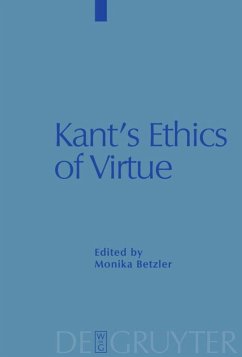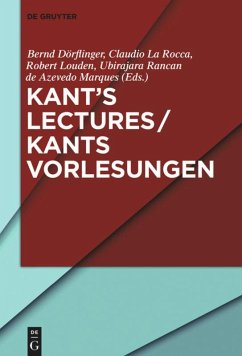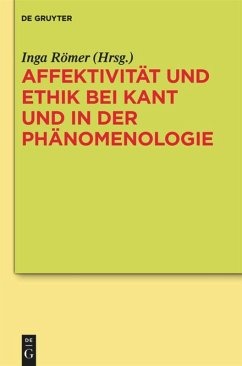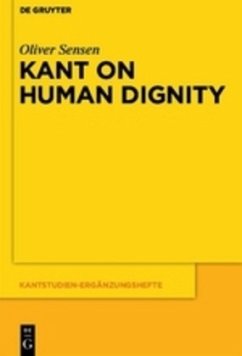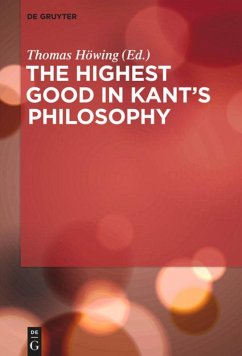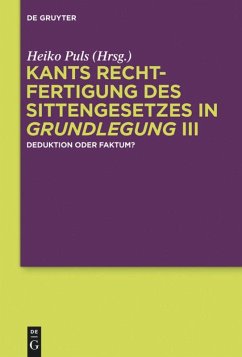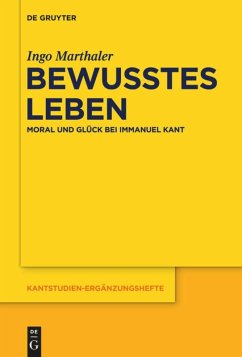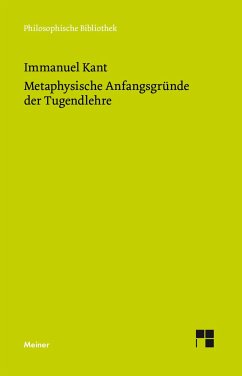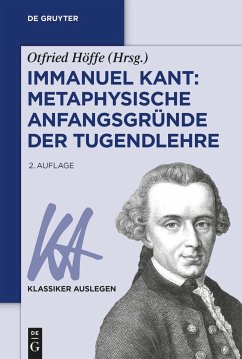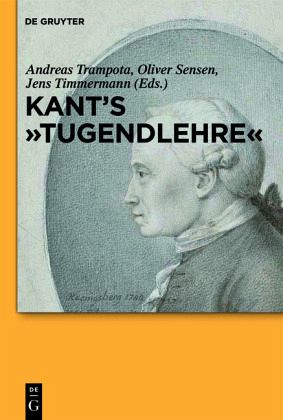
Kant's "Tugendlehre"
A Comprehensive Commentary
Herausgegeben: Trampota, Andreas; Sensen, Oliver; Timmermann, Jens
Versandkostenfrei!
Versandfertig in 1-2 Wochen
32,99 €
inkl. MwSt.

PAYBACK Punkte
16 °P sammeln!
Building on the results of the Groundwork and the Critique of Practical Reason, Kant finally published his system of moral philosophy in two volumes in 1797. By then, he had been planning to write a Metaphysics of Morals for three decades; but only the title remained unchanged while the basic principles of his theoretical and practical philosophy changed dramatically. While for many years academic moral philosophy focused mainly on Kant's earlier ethical treatises, there has recently been much interest in this later and perhaps more mature work on moral philosophy, particularly the ethical par...
Building on the results of the Groundwork and the Critique of Practical Reason, Kant finally published his system of moral philosophy in two volumes in 1797. By then, he had been planning to write a Metaphysics of Morals for three decades; but only the title remained unchanged while the basic principles of his theoretical and practical philosophy changed dramatically. While for many years academic moral philosophy focused mainly on Kant's earlier ethical treatises, there has recently been much interest in this later and perhaps more mature work on moral philosophy, particularly the ethical part of the Metaphysics of Morals, the "Metaphysical Principles of the Doctrine of Virtue" or "Tugendlehre".
The present volume responds to these demands. Following a series of research workshops, 18 scholars from Germany, Italy, Britain and the United States provide a seamless commentary on the "Doctrine of Virtue", discussing topics such as suicide, truthfulness, moral perfection, beneficence, gratitude, sympathy, respect and friendship as well as Kant's moral psychology, philosophy of action and theory of moral education. This book will be an invaluable resource for moral philosophers and Kant scholars alike.
The present volume responds to these demands. Following a series of research workshops, 18 scholars from Germany, Italy, Britain and the United States provide a seamless commentary on the "Doctrine of Virtue", discussing topics such as suicide, truthfulness, moral perfection, beneficence, gratitude, sympathy, respect and friendship as well as Kant's moral psychology, philosophy of action and theory of moral education. This book will be an invaluable resource for moral philosophers and Kant scholars alike.



